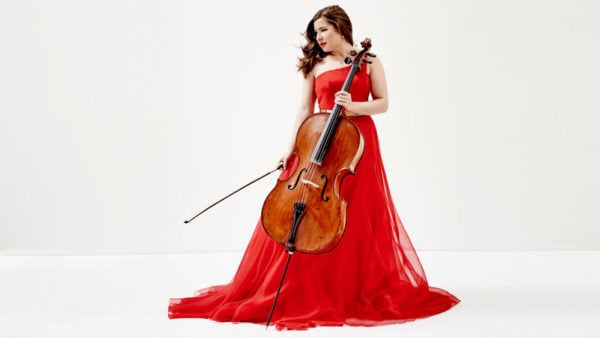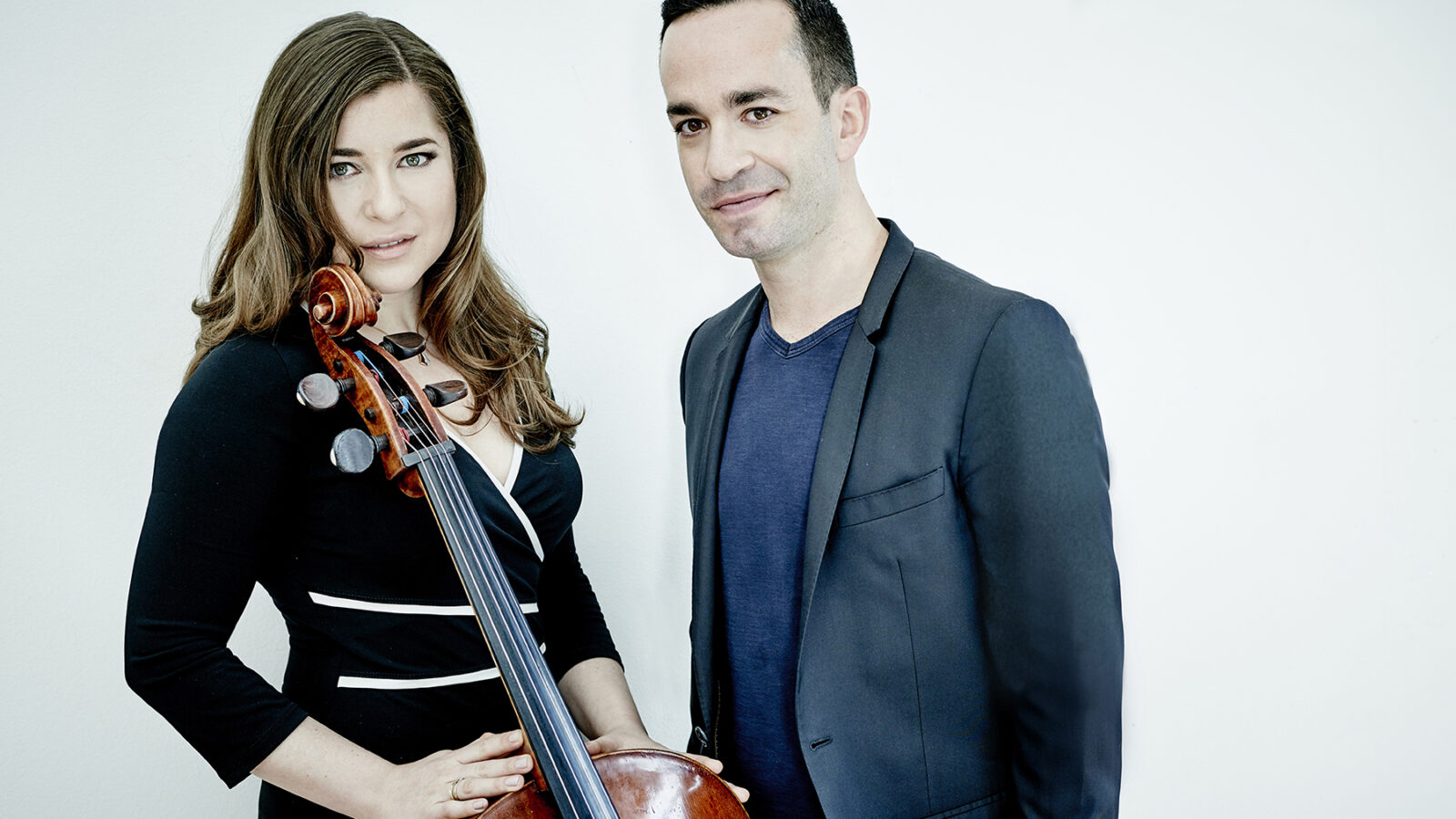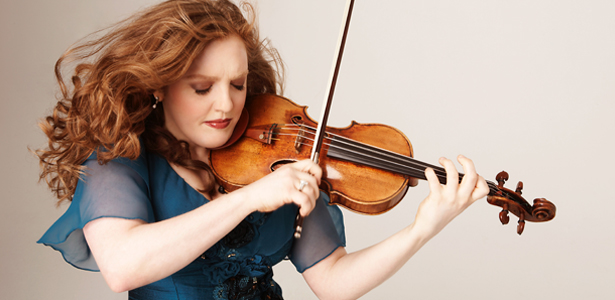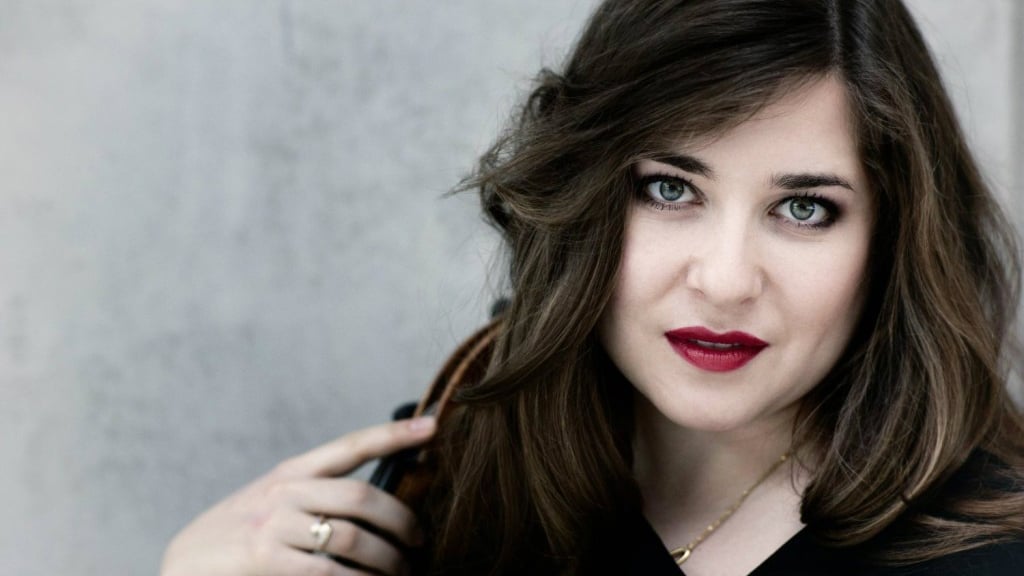
Cellist Alisa Weilerstein (Photo: Decca / Harald Hoffmann)
"I'm a cellist, therefore I don't have the luxury of 'favorite' repertoire," Alisa Weilerstein said after rehearsing a concerto, Outscape, by Pascal Dusapin, which had its world-premiere performances with the Chicago Symphony Orchestra Thursday, May 26, 2016. "I love the standard repertoire very much, but it's limited, especially if you compare it the violin or the piano."
Weilerstein is committed to expanding the repertoire by developing relationships with living composers. "I try to take Rostropovich's example, who had incredible relationships with composers and of course was the muse to Shostakovich and Prokofiev," she said. "Without him, we might not have these titanic 20th century cello works. Cellists of my generation need to give back and forge relationships with the composers of today to create a strong 21st-century repertoire. It's not only out of a sense of duty, but I genuinely enjoy working with composers and being a part of the creative process."
Over the years, Weilerstein has become close to a few composers in particular. "Joe Hallman is probably my best friend in the world. He's almost like family, really. He's written a lot of works for me including three concertos and several recital pieces." Hallman composed one of her favorites works, Dreamlog, for her and Inon Barnatan. "He is, for lack of a better word, a very dreamy person. When he wakes up, he writes down what he's dreamt about. There are 11 dreams in this piece, but the performer can choose the order and how many to play. The idea is to tailor the piece to the individual and make it as personal as possible."
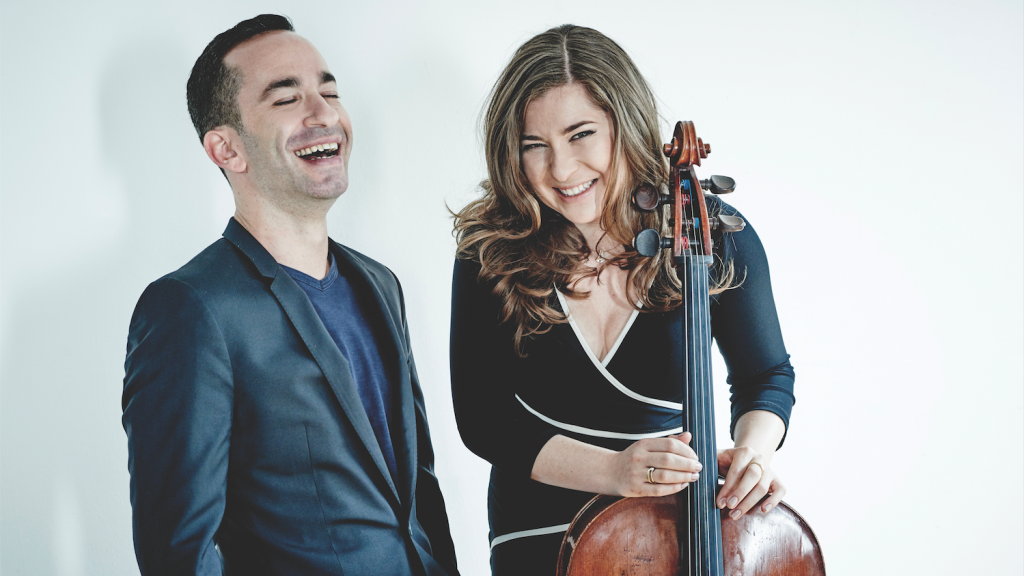
Pianist Inon Barnatan and cellist Alisa Weilerstein (Photo: Paul Stewart)
When Weilerstein first met with Dusapin for rehearsals of Outscape in Chicago, she said the composer looked a bit surprised to see her. Just eight weeks before bringing his newly-composed concerto into the world, Weilerstein gave birth to her first child. "He was shocked, I think, but I told him, 'I planned it, I knew I would be here. Maybe you didn't know I would be here, but I did!'"
After practicing her solo part and adding lots of cues, "because the rhythms are complex and the orchestration is very thick," Weilerstein was thrilled to rehearse the piece with the orchestra. "I thought I would like the piece, but to have the confirmation after hearing it with the rehearsal is encouraging."
Life for any freelance musician is not easy. But add a newborn baby to the mix, and things can become even more complicated. "I don't have a traditional job, so I can't speak to everyone's experience. But I can say that the United States is the only developed country that doesn't have paid family leave, and it's a crying shame. Women's rights have come a long way, but we have a long way to go."
Between rehearsals for Outscape and tending to her family, Weilerstein shared 5 of her favorite new works for cello, some of which she's also happened to record herself. Find her selections — and what she had to say about each of them — below. Jump to complete playlist
1. Osvaldo Golijov's Omaramor
"This is an early piece of his from 1991. It's essentially a long tango, but it's also an homage to Carlos Gardel, a legendary tango singer who died tragically in a plane crash in 1935. This is kind of an improvisation on one of his hits called 'Mi Buenos Aires Querido.' You can imagine the cello is walking through the streets of Buenos Aires. Sometimes it's rough, sometimes it's extremely melancholic. It's very dramatic. It's an eight-minute soliloquy that is very close to my heart."
2. Matthias Pintscher's Reflections on Narcissus
"It is very intricate and very dissonant, for lack of a better word. It's incredibly dramatic and theatrical. It's five movements played as a continuous movement. It's wild orchestration. There's an incredibly virtuosic cello part, and it takes a lot of work to put together. But it's incredibly powerful. It makes use of every possibility in every instrument. It stretches them to what appears to be the limit and then takes them further. The title is not literal, but there are places where you can hear a very dramatic moment when Narcissus falls into the pool to his death. It's great fun to play."
3. Lera Auerbach's 24 Preludes for Cello and Piano
"I’ve worked with Lera Auerbach very closely and have performed these works with her. She said, 'I don't think tonal music is music of the past, I think it's the music of the future.' She makes a very strong case for that with her music, which is generally very tonal. Of course, with these pieces, she's going back to a very old form — the prelude. She wrote 24 preludes for violin and piano, for solo piano, and other combinations. The preludes for solo cello and piano are generally very dark and very dramatic. They explore a lot of different colors, but I'd say from grey to black — grey to very, very black!"
4. Elliott Carter's Cello Concerto
"There are seven movements which are not so different in character I find. The music in general is very gestural. You have a feeling that it's a complex puzzle you're working out. On the surface, it looks very cerebral, but in fact the end result is not. It has very special gestures and humor, almost a fantasy-like feeling."
5. Bright Sheng's Seven Tunes Heard in China for solo cello
"This was an entirely new language for me, going into old Chinese folksongs. I enjoyed it immensely, especially creating the effects of ancient Chinese instruments on the cello. It was a challenge, but I like it a lot. My favorite is probably 'The Little Cabbage.' It's a very mournful song which is very high on the cello. He asks for a lot of slides and a very special kind of vibrato. I find it incredibly beautiful. The fourth is called 'The Drunken Fisherman.' It's an entire movement of pizzicato and I have to use a guitar pick for some of the sounds. This one is a lot of fun, you can hear the guy stumbling around. There's a place at the end where you can almost hear him banging his head against the wall and trying to come to again."
Follow WFMT on Spotify and Apple Music!


